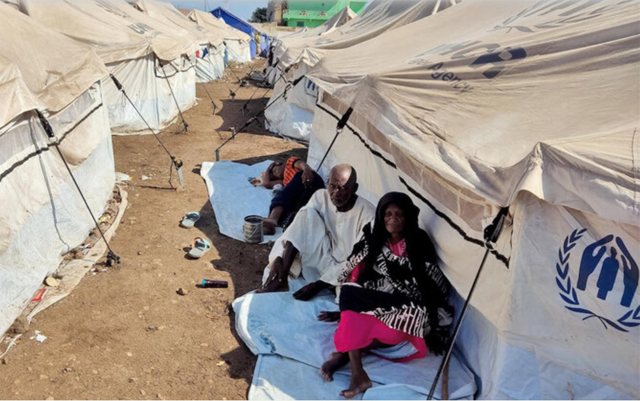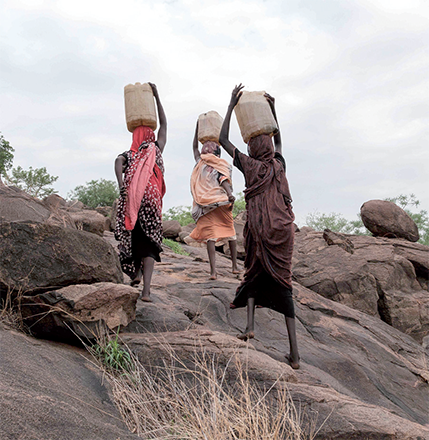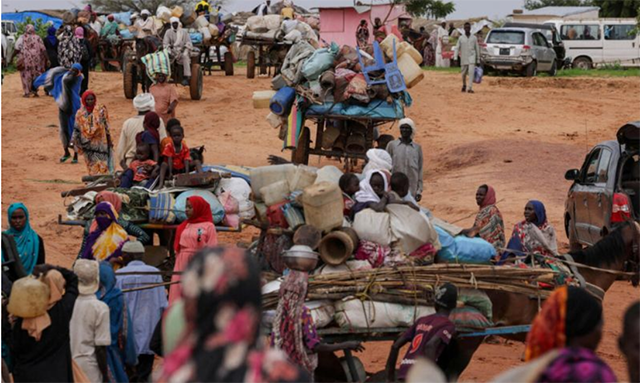You are here
Sudan government rejects UN-backed famine declaration
By AFP - Dec 29,2024 - Last updated at Dec 29,2024

Across Sudan, more than 24.6 million people – around half the population – face high levels of acute food insecurity (AFP photo)
CAIRO — The Sudanese government rejected on Sunday a report backed by the United Nations which determined that famine had spread to five areas of the war-torn country.
The Integrated Food Security Phase Classification (IPC) review, which UN agencies use, said last week that the war between Sudan's army and the paramilitary Rapid Support Forces had created famine conditions for 638,000 people, with a further 8.1 million on the brink of mass starvation.
The army-aligned government "categorically rejects the IPC's description of the situation in Sudan as a famine", the foreign ministry said in a statement.
The statement called the report "essentially speculative" and accused the IPC of procedural and transparency failings.
They said the team did not have access to updated field data and had not consulted with the government's technical team on the final version before publication.
The IPC did not immediately respond to AFP's request for comment.
The Sudanese government, loyal to army chief Abdel Fattah al-Burhan, has been based in the Red Sea city of Port Sudan since the capital Khartoum became a warzone in April 2023.
It has repeatedly been accused of stonewalling international efforts to assess the food security situation in the war-torn country.
The authorities have also been accused of creating bureaucratic hurdles to humanitarian work and blocking visas for foreign teams.
The International Rescue Committee said the army was "leveraging its status as the internationally recognised government (and blocking) the UN and other agencies from reaching RSF-controlled areas".
Both the army and the RSF have been accused of using starvation as a weapon of war.
The war in Sudan has killed tens of thousands of people and uprooted over 12 million people, including millions who face dire food insecurity in army-controlled areas.
Across the country, more than 24.6 million people, around half the population, face high levels of acute food insecurity.
Related Articles
PORT SUDAN, Sudan — More than half of Sudan's population is facing high levels of "acute food insecurity", a situation exacerbated by the co
PORT SUDAN, Sudan — Sudanese volunteer rescuers said shelling in the greater Khartoum area has killed at least 120 people, as fighting betwe
PORT SUDAN, SUDAN — Thousands have fled a town in southern Sudan since clashes erupted last week between the Sudanese army and rival paramil



















